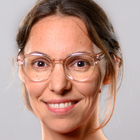If you like the world, save it!
Mathis, Okka Lou / Matthias RuchserThe Current Column (2015)
Bonn: German Development Institute / Deutsches Institut für Entwicklungspolitik (DIE) (The Current Column of 21 September 2015)
Bonn, 21 September 2015. This year the focus is on heads of state and government to save the world. Following the G7 summit in Elmau and the United Nations (UN) conference on Development Financing in Addis Ababa, this coming weekend sees the passing of the 2030 Agenda for Sustainable Development in New York, with December 2015 set to see the negotiation of a new climate agreement in Paris. And what about us? Our role as citizens is by no means limited to demanding action from politicians instead of empty rhetoric. In view of the urgency arising from massive global challenges such as the refugee crisis or growing inequality, the mood regarding international processes is a sober one. The documents of New York and Paris are to contain written commitments to a humane existence on our planet, however, it remains to be seen whether prompt actions follow. The reason for this: if political agreements fail to be honoured, there are no credible mechanisms for sanction within the framework of the UN. The states enact their regulations themselves and in cases of doubt, economic or geo-strategic interests win out over joint agreements. What remains is the principle of voluntariness, as with the Millennium Development Goals and the Sustainable Development Goals (SDGs). Whilst voluntariness makes it easier to agree on ambitious – albeit abstract – objectives, these typically remain vague for binding treaties. However, responsibility not only lies with the international community. Every individual also needs to take responsibility for themselves. In our liberal societies we have the freedom to destroy – and currently exercise that freedom. However, the freedom to act destructively also contains the freedom to refrain from doing so. Individual freedom goes hand in hand with the social responsibility of each individual. This, too, is an achievement of liberal democracies: we are not able to shift responsibility for our actions onto those governing us, as we enjoy great decision-making freedom. And we should not roll the costs of our individual decisions onto society. We have the choice between Mallorca or the North Sea, between car or bicycle, meat or vegetarianism, between cheap discount fashion or higher quality and more durable clothing. Freedom of information and the breadth of the media mean that no-one in our countries can credibly claim to know nothing of the ecological and social cost of our consumer decisions. We can support global changes by acknowledging responsibility for each of our daily decisions – and facing up to that responsibility. We can neither shirk that responsibility, nor take responsibility for others. Therein lies the greatest opportunity for change: we have the freedom, and subsequently the power, to save the world. Every single person, each company, every municipality, day in, day out. Individual responsibility and international agendas go hand in hand. The universal character of the new Sustainable Development Goals appeals not only to developing and emerging countries to pursue a sustainable path of development, but to all states. In this way, each individual can become a “development agent” – including in their own country. The UN climate treaty scheduled for agreement in December will also bring all countries on board, whilst at the same time acknowledging and promoting the influence of private and local climate initiatives. For global policy the agreement of a common direction in 2015 is in itself a key step, even though many details regarding implementation of sustainability agendas remain as yet unclarified. In New York and Paris the worldwide path towards sustainable development will be laid down, making a collective effort on behalf of the global community more likely. However, the responsibility of the individual to influence the formation of these sustainable development and climate protection agendas is nothing new: we citizens are already able to decide every day to be part of the problem or part of the solution. If you, too, want to save the world, do not only look to the great stages of international politics: simply do it yourself! Okka Lou Mathis and Matthias Ruchser took part in the second “Save The World” theatre festival in Bonn last weekend. Together with James Yarker of Stan’s Cafe, from Birmingham, UK, they illustrated the dimensions of people with regard to the earth, rendering climate justice and individual responsibility tangible for the audience. In the scope of the theatre festival this year Theater Bonn invited various teams comprising artists and experts to address the current challenges regarding “save the world”, against the backdrop of climate change and its consequences.

